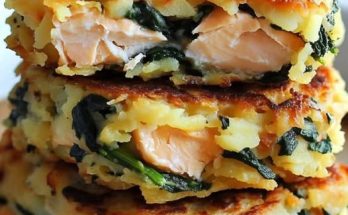Homemade Egg Noodles
Homemade egg noodles are not only easy to make but also add a personal touch to your culinary creations. Whether you’re a novice cook or a seasoned chef, crafting these noodles from scratch is a rewarding experience that enhances the flavor and texture of any dish they grace. From comforting soups to elegant pasta dishes, homemade egg noodles elevate every meal with their simplicity and homemade goodness. Try this recipe today and savor the difference in taste and quality that homemade noodles bring to your table.

Homemade Egg Noodles
Homemade egg noodles bring a touch of comfort and freshness to any dish, elevating simple meals with their delicate texture and rich flavor. Whether enjoyed in a hearty chicken soup or as a base for your favorite pasta sauce, these noodles are easy to make and incredibly versatile. With just five basic ingredients, you can create a batch of noodles that surpasses store-bought varieties in taste and satisfaction. Follow this straightforward recipe to experience the joy of homemade egg noodles in your kitchen.
Ingredients
- 1 egg
- 2 egg yolks
- 3 Tbsp cold water
- 1 tsp salt
- 2 cups flour
Instructions
- Beat the Eggs: In a bowl, beat the whole egg and egg yolks until light and fluffy.
- Add Ingredients: To the beaten eggs, add cold water, salt, and flour.
- Knead the Dough: Mix until a dough forms, then transfer to a lightly floured surface and knead until smooth and elastic.
- Roll Out the Dough: Using a rolling pin, roll out the dough on a floured surface to about 1/8-inch thickness.
- Cut into Strips: Use a pizza cutter or knife to cut the dough into strips of desired width.
- Storage Options: Store the noodles in the refrigerator for 2-3 days or freeze them for 1-2 months to use later.
- Cooking Instructions: Boil the noodles in salted water for 7-9 minutes or until tender. Drain and serve hot.
- Serve and Enjoy: Serve these homemade egg noodles in soups, with butter and herbs, or topped with your favorite sauce for a delicious meal.





